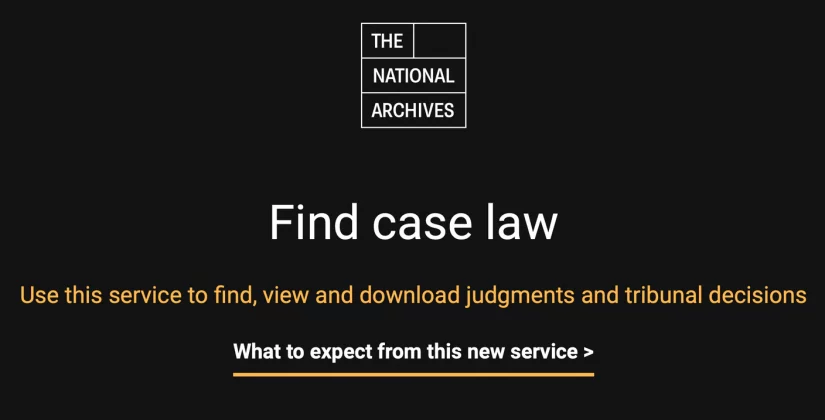ICLR statement on the launch of The National Archives national database of judgments
The ICLR welcomes the launch of a new national database of judgments for the senior courts and tribunals of England and Wales. It is a valuable archive which will serve the interests of open justice and public legal education, as well as providing an important resource for legal data research. Decisions of the courts are… Continue reading about ICLR statement on the launch of The National Archives national database of judgments

The ICLR welcomes the launch of a new national database of judgments for the senior courts and tribunals of England and Wales. It is a valuable archive which will serve the interests of open justice and public legal education, as well as providing an important resource for legal data research.
Decisions of the courts are one of the primary sources of law in a common law jurisdiction such as ours and open justice demands that they be publicly accessible. Litigants can learn from them how the justice system works and what to expect from it. The study of legal precedents is an important part of legal and professional education. The accurate citation of authorities in court is an essential requirement of advocacy and judicial decision making.
It is important, however, to recognise the difference between the publication of judgment transcripts, described by former President of the Supreme Court Lord Neuberger as “judgment dissemination”, and law reports, which he described as “judgment enhancement”. (See Neuberger, “No Judgment – No Justice”, First Annual BAILII lecture, 2012 https://www.bailii.org/bailii/lecture/01.html )
Since its formation in 1865 the ICLR has provided a more specialised form of access to case law by selecting, from the many thousands of new decisions each year, the few hundred genuinely worthy of study and citation in the form of law reports. We have a dedicated team of legally qualified reporters whose task is to select and enhance those decisions that merit preservation and study. However, we also publish or link to unreported judgments alongside our reports and case summaries and provide access to primary legislation, for which The National Archives provides the official source.
The Law Reports, of which ICLR is the official publisher, are required to be cited in preference to other general or specialist series of reports, and those in turn in preference over unreported judgment transcripts: see Practice Direction (Citation of Authorities) [2012] 1 WLR 780 (Lord Woolf CJ).